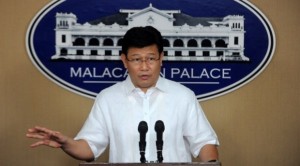MANILA, Philippines—The Department of Environment and Natural Resources (DENR) expressed optimism that the country’s mining sector would become even more conscientious and transparent in its operations with the creation of an accountability mechanism for the industry.
“We expect extractive companies to be as open, fair and uphold best practices in the country just as they do in other places,” Environment Secretary Ramon Paje said as he hailed the creation of the Philippine Extractive Industries Transparency Initiative (PH-EITI) under Executive Order 147 signed by President Benigno Aquino III.
Paje described the executive order as “a milestone that has opened very wide avenues for the mining sector to prove that mining can promote genuine development of developing countries possessing mineral wealth like the Philippines.”
The issuance of EO 147 is one of the requirements to make the Philippines compliant in international undertaking to bring about transparency and accountability in the extractive industries and in government.
Paje said the presidential order was also among the reforms introduced by the Aquino administration “to ensure that the mining sector revenues are utilized in the most efficient and effective manner with accountability being the guiding principle.
EITI is a global standard for transparency in the mining sector that involves the reconciliation of company payments with government receipts by an independent administrator and disclosure of that information to the public.
The process is managed by the government with the active involvement of partners from industry and wider society.
Under EITI, all companies engaged in a country’s mineral sector will report what they have paid to the government, and then the government reports what it has received.
The reports from the companies and the government are compared by an independent auditor and make up what is called the country’s “EITI report.”
Initiated in 2002 by then British Prime Minister Tony Blair at the World Summit on Sustainable Development in Johannesburg, South Africa, EITI is recognized as a useful tool for resource-rich countries like the Philippines.
The objective is to better manage their natural resources and to ensure that the extractive industries make positive contributions to the improvement of economies of host communities during the development process.
There are currently 25 EITI-compliant countries in the world and 16 EITI candidate countries, or those that are working to reach compliant status, including the Philippines.
Paje said the country’s EITI application has been in the works since 2005, but it was only accepted as a candidate country in June, a year after Mr. Aquino issued EO 79, which laid down the road map on mining sector reforms, including guidelines on environmental protection and responsible mining.
RELATED STORIES:
Kalinga tribe questions NCIP on mining exploration nod
Marinduque town seeks better deal in mining tragedy payment
Philippines detains 18 Chinese for illegal mining
